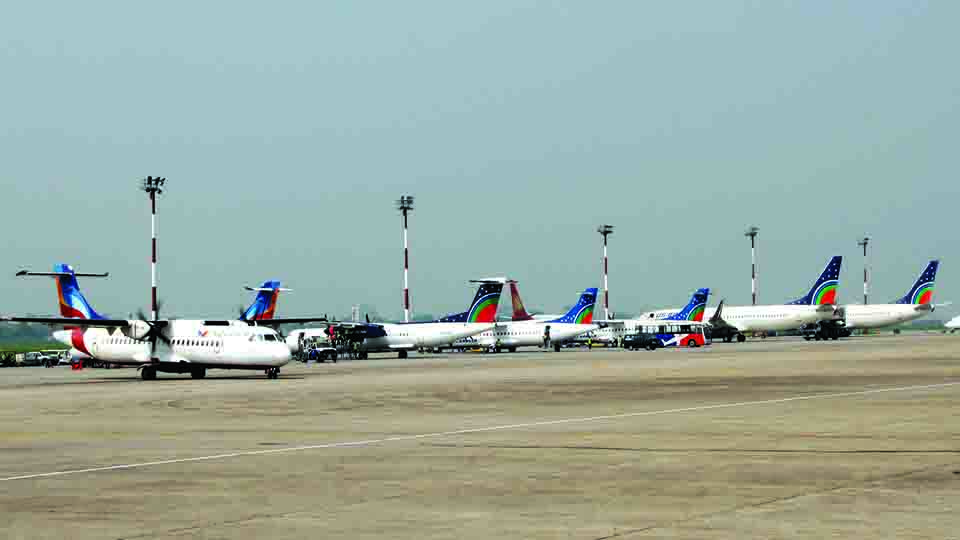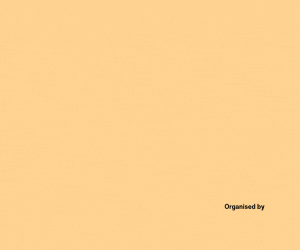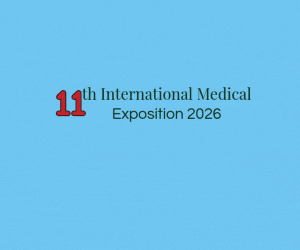
Dhaka : The private airlines of Bangladesh are still struggling and searching for solid ground because of government neglect and wrong policies.
Even now when the struggling domestic airline industry needs and expecting, all types of positive support for survival, the airlines hit a big bump_ in the form of price hike of fuel_ laid by the government.
The higher fuel price, in addition to already existing high aeronautical charges and abnormally high surcharge, have become a sort of unbearable load on the domestic airlines. All the three operating airlines have become defaulters in paying fees and charges. A number of airlines, that have already gone out of business, are also remain defaulters.
The fees and charges are so high that once an airline becomes a defaulter, it becomes very difficult to get out of it. Because the dues get larger and larger, making the airline mortally sick.
Price hike of jet fuel
Along with rest of the world, the existing global situation for airline industry is very bad, due to Covid-19 pandemic. At this time, three operating airlines of the country-Biman Bangladesh Airlines Limited, NOVOAIR and US-Bangla Airlines-got hit by latest hike of jet fuel price, when these airlines were already struggling for survival.
The government owned Padma Oil Company, the monopoly supplier of jet fuel in the country, has once again increased the price of the fuel. This is going to substantially increase the cost of operation as the jet fuel alone constitutes 40 to 46 per cent of operational cost of the airlines.
In the past eight months, this is the seventh time that Padma, a subsidiary of the Bangladesh Petroleum Corporation, has increased jet fuel prices. According to local aviation industry insiders, the price hike of jet fuel will cost competitiveness of local airlines on international routes, as well as higher cost of air travel on domestic routes.
From June 8, 2021 price of jet fuel is up by BDT 03 a litre to BDT 63. In October 2020, the price was BDT 46, meaning BPC has increased the price by 37 per cent in the last eight months.
In December, 2020, the price of a litre of jet fuel was BDT 48, in January, it was BDT 53, in February BDT 55, in March BDT 60, and in April it was BDT 61. Then from June 8, litre price is fixed at BDT 63 for domestic sector_ hiked by 25 per cent since December last year.
A flyer might have to pay an additional BDT 800 to BDT 900 for tickets to domestic destinations. It is estimated that that recent jet fuel price hike is going to make air journey costlier. For example, cost of air travel between Dhaka and Saidpur will increase to BDT 3,400 from existing fare of BDT 2,700. Fares on all routes will get increased in similar proportion.
Whimsical decisions Jet fuel price in BD unreasonably higher than other companies
Jet fuel price in BD unreasonably higher than other companies
There is no logic behind BPC's price hike at a time when prices have been stable in the international market for three months, said Mofizur Rahman, Managing Director, NOVOAIR and Secretary General of Aviation Operators Association of Bangladesh (AOAB).
"We will have no alternative to increasing air fares and it is the passengers who will have to bear the cost," he added.
The country's airline industry is on the verge of collapse due to the pandemic, he said. "The increased jet fuel cost will be an additional burden on the industry. Such a monopoly in business and whimsical decisions from BPC should come to an end."
Seeking anonymity a senior official of Padma Oil said that the fuel price for domestic routes is 82 per cent higher than that of Kolkata and for international routes it is 38 per cent higher.
Uneven competition
The price hike of jet fuel will force all the three Bangladeshi airlines to face uneven competition on international routes with operating foreign airlines.
The jet fuel prince in Bangladesh for international sector is BDT 50 a litre, AOAB Secretary General Mofizur Rahman said, that is very high compared to price in the global market. Why jet fuel price in Bangladesh was increased several times in quick succession when global market was stable, he asked.
High aeronautical fees
For quite sometimes private airlines of the country are demanding waver of all aeronautical, landing and parking charges for both domestic and international operations for five years. If that is not possible, then charges for both types of flights be fixed at the rate of domestic operation.
According to the private airlines of the country, they are to pay aeronautical, landing and parking charges at different rates for domestic and international routes. Moreover, the charges are very high, compared to similar charges in different countries of the region.
The domestic airlines of Bangladesh are being charged for landing at two different rates. One for flight originating and terminating within domestic routes., and the other for flight originating from foreign country while returning home.
These much higher government charges are making operational cost of private airlines high. In the age of stiff competition, there is no way to distribute these operational costs on the fares. So, private airlines find it very difficult to carry financial burden for long.
Much less in India
In neighbouring India where aviation market is huge and airlines are much bigger, compared to Bangladesh, the aeronautical fees on the airlines are very low and reasonable. Mr. Mofizur Rahman told me that the airlines of India pay no landing and parking fees for aircraft with 80 or less seats.. Even for larger aircraft the landing and parking fees are seven times less than what Bangladesh airlines are to pay. If Bangladesh airlines pay BDT 07 than it is only BDT 01 for Indians airlines, said one of the airline owners of the copuntry.
Sky-high surcharge
The government has imposed abnormal surcharge on the airlines for late payment of fees-BDT 12 surcharge for BDT 01 unpaid fee-and this is making airlines of the country sick and forcing out of business.
On July 7, 2013, the Ministry of Civil Aviation and Tourism (MoCAT) though a notification imposed 06 per cent surcharge for every 30 days on airlines for unpaid fees.
If an airline is unable to pay the fee for one year, it is forced to pay 72 per cent surcharge on the unpaid amount.
According to an estimate, until March this year, Biman Bangladesh Airlines Limited owes BDT 4,315 crore 11 lac 31 thousand 715 to CAAB; NOVOAIR owes to CAAB BDT 3 crore 27 lac 65 thousand 179, of which BDT 1,59,980 surcharge and US -Bangla owes to CAAB BDT 16 crore 82 lac 77 thousand 68, of which BDT 9,18,161 is surcharge.
According to a report, six domestic airlines-including some which have already gone out of business and in operation-owes to CAAB BDT 5,190 crore for various fees. Of the total, actual default amount is only BDT 306 crore 75 lac 61 thousand 967. On this amount BDT 3705 crore 74 lac 77 thousand 174 is imposed as surcharge.
The airlines that have gone out of operation are: Regent Airways --BDT 283 crore 38 lac 28 thousand 173 of which surcharge is BDT 119 crore 28 lac 43 thousand 668. United Airways --BDT 203 crore 06 lac 69 thousand 493 of which surcharge is BDT 146 crore 80 lac 60 thousand 202. GMG Airlines-- BDT 368 crore 29 lac 6 thousand 48, of which BDT 311 crore 30 lac 87 thousand 579 is surcharge.
Surcharge on late payment, imposed by the government on private airlines is also very high-yearly 72 per cent. Compared to this very high interest rate on late payment, India is charging only 12 per cent. In Pakistan it is IR plus 02 per cent; in Thailand IR plus 02 per cent; in Oman it is 10 per cent; in Malaysia it is 12 per cent and in Singapore it is 08 per cent.
Unhappy industry
Talking about price hike of fuel, Mofizur Rahman, said that there was no rationale behind the price hike at a time when prices were stable in the international market.
"The country's aviation industry is on the verge of collapse due to the first and second wave of the pandemic. The increased jet fuel cost will be an additional burden. The BPC's monopoly and whimsical decisions should come to an end," said Mofizur.
He said that under the current extremely adverse situation, the airlines will have no alternative but to shift the burden on the travelling public as much as possible. To survive, there is no other way.
On the other hand, higher cost of travel will discourage people to limit travel, because purchasing capacity of the people has also become very limited, Mofiz said.
"At a time when we need the government's support on an emergency basis, the BPC has illogically increased the jet fuel price," he added. "Our survival is at the stake now."
"The increase of jet fuel prices is a severe blow to the local airlines", said Kamrul Islam, General Manager (Public Relations), US-Bangla Airlines.
Aviation experts apprehend that in the long run this is going to harm the growth trend of air travel in the country.
It may be noted that according to an estimate of private airlines, the number of travellers on the domestic routes are between 18 hundred thousand and 20 hundred thousand in a year. The number is rising at the rate of 07 per cent a year.
But the situation has changed since March 2020 due to the situation created by Covid-19 pandemic. It has hit the private airlines very badly and the jet fuel price hike is making the burden heavier.
On surcharge
Secretary General of Aviation Operator's Association of Bangladesh (AOAB) and also the Managing Director Mofizur Rahman expressed surprise at the rate of surcharge. He said sometimes payment of fee may get default, but if surcharge is increased every month at the rate of 06 per cent, the amount is getting double just in a year. He described it as unjustified.
Another aviation expert describes this measure as stab on the aviation sector. One can collect surcharge if someone fails to pay fees on time, but that should be reasonable, he added.
The decision to impose surcharge was not taken by CAAB, it was the decision of the Ministry of Finance, CAAB has no authority to wave it as it is part of economic policy under Finance Ministry.
Unfavourable govt actions
It is sad to say that the brief history of the private airlines of the country is not a happy one. There are number of reasons-some external and some internal for the situation.
A look at the short and troubled history of the private airlines will show that the rate of survival of private airlines of Bangladesh is comparatively very low. Since the opening of airline industry to private sector, more private airlines have gone out of operation than the number now flying.
Aero Bengal, Air Parabat and Royal Bengal Airways, Best Air, GMG and United Airways have already become history. Regent Airways has stopped operation and its future is uncertain. Only two private airlines NOVOAIR and US-Bangla Airlines are now in operation.
Right at the start
The trouble of the private airline industry started right at the beginning with government limiting its operation to certain uncharted routes and small aircraft.
It may be recalled that in 1993, the government in its bid to catch up with the rest of the world, decided to allow private airlines to operate, restricting to selected domestic routes and Short Take-off and Landing (STOL) aircraft. Destinations, specified for the purpose were Shamsernagar (in Slyhet), Lalmonirhat (in Rangpur), Ishwardi, Barishal, Patuakhali, Mongla, Bogra and Cox’s Bazar.
However, few years later the government decided to liberalise the operation of private airlines and withdrew the restrictions imposed earlier. In 1996, the government allowed the private airlines to operate on any domestic routes using any aircraft. Early in the first decade of the current century, regional and international routes were also opened to private airlines.
Healthy market, but
Air traffic-both in domestic and International sectors has experienced steady growth in recent years. Despite growth in the market, the airline industry in the country has this far failed to find solid ground. More private airlines have gone out of operation than now in operation.
Govt inaction
Except taking decision to allow private airlines to operate-first in domestic market and later on regional and international routes-the government has done little to help the private carriers in any stage, in any form. Contrary to support-policy or otherwise-the fledging airline industry of the country are burdened with fees and charges-much more than the industry can bear.
The industry believes that the government has responsibility in protecting the interest of private airlines as these are serving public interest. Private airlines are no doubt business ventures, but that business is serving travelling public.
So, in the public interest, similar to many other countries-- the government must provide support to the fledging private airlines of the country. In the highly adverse situation, created by Covid-19 pandemic, the support of the government has become more important for survival.
All the countries of the world-developed and others-are providing financial and other kind of support to the airline industry. Bangladesh should also do the same by focusing attention on the ways to help through reducing burden as far as possible.








